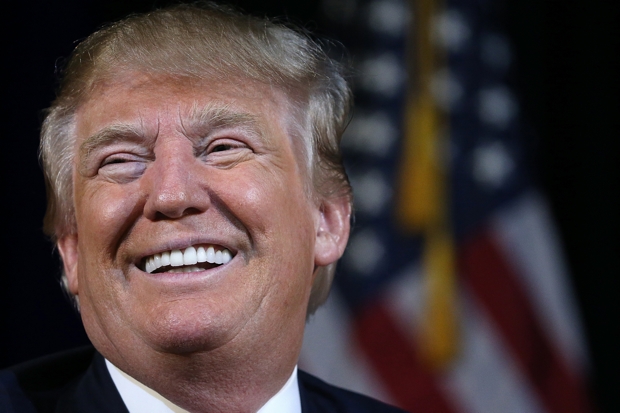There have been many hyperbolic headlines about Donald Trump these last few days and weeks, so I’d like to add my own – can America survive the Donald as president?
I don’t mean that, as chief executive, he’s going to become a dictator and begin world war three, although as this week’s leader points out, his opposition to free trade could be seriously bad news.
Rather, Trump is a product of a noticeable trend in American life – the extreme polarisation of its political system – and he’s bound to accelerate it. Research shows that the median Republican and Democrat position on many issues has noticeably moved away from the centre, while the percentage of each group who have a negative view of the other has sharply increased. Add to this the fact that an increasing number of Americans are living in politically polarised counties, and that many would disapprove of a family member dating a member of the opposite political tribe.
These are not good signs, but what I find most disturbing are stories like this recent one about three American cities barring employees from traveling to North Carolina. If you wanted to polarise your nation in the long-term and create the possibility of violent conflict, then boycotting parts of the country simply because they are politically different to you is just about the best way to go about it. When goods stop crossing borders, armies will start, which is why Trump’s anti-China rhetoric is far more disturbing than his anti-Mexico talk.
Europeans seem to view the Republican Party as being off the wall, but both sides of the American divide have extreme elements. As Righteous Mind author Jonathan Haidt and his colleagues in Heterodox Academy point out, younger American liberals are also extremely intolerant on many issues, vested with that Puritan-Yankee certainty which is both inspiringly idealistic and very tiresome. Unless this polarisation declines, there will eventually come a time when a presidential election is not recognised by a large segment of the population.
Trump is a symptom of this increased polarisation, not a cause, but he will certainly make it worse, simply by his rhetoric if nothing else. After all, he is in many ways a product of identity politics; whereas the Democrats have used it to represent minorities, Trump now plays the same game to stand for a declining (and in particular struggling) white majority. As whites move towards a minority, it seems logical, if not inevitable, that identity politics will play a greater role.
A nation is more than just a register of voters paying tax to get services; it relies on social capital, and unless there is a shared idea of nationhood then whoever ends up in power lacks true legitimacy in the eyes of large amounts of the electorate. America’s real weakness may be the idea of a ‘proposition nation’, the (relatively recent) concept that American-ness is defined not by shared history but by adherence to a certain set of values. This is the result of the social changes of the 1960s, including the 1965 Immigration Act that opened the borders to non-Europeans, and the transition of the country from being historically white (with a partially excluded black minority) to multicultural.
This is all well and good on paper, or at least on the cinema screen, but defining a country by its values is not only illiberal, but also incredibly weak at creating social solidarity. As it is, America’s social solidarity is in steep decline, as can be inferred by the declining trust people feel. Democracy and good government generally depend on things like trust, without which people are far more likely to put their trust in demagogues.
The logical thing, of course, would be for the country to divide, and perhaps if the Republican and Democrat areas were contiguous, as in 1861, this is what would happen. Personally as an outsider that seems to make more sense, although I’m a bit wacky in supporting the idea of a world of 1,000 micro-states, which would allow everyone to try out their ideal of a society rather than forcing it on others; if some people wanted to set up countries where illegal immigrants were classified as ‘dreamers’ and where anyone could use a women’s toilet, then good luck to them, they have my full support, but to quote the late Sam Goldwyn, include me out.
The worst thing about a Trump presidency, from a British point of the view, would be enduring four years of BBC comedy about him. If that were to happen, then world war three couldn’t come soon enough.







Comments